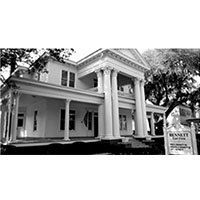Lakeland Criminal Lawyer, Georgia
Sponsored Law Firm
-
 x
x

Click For More Info:
-
The Ford Law Firm
Assault, DUI, Firearms, Murder, more... Expect Results, Not Excuses
I understand how the system works. Potentially, even getting the case dismissed before it is ever filed against you…it is important to act quickly. Call now at the number below.
800-298-1630  Thomas Ford Alpharetta, GA
Thomas Ford Alpharetta, GAAttorney At Law - GA, 1996
University of Florida, J.D. - 1995
 State & Federal Law
State & Federal LawCriminal cases are filed in both State and Federal Courts. Click for Info.
Jim T. Bennett
✓ VERIFIEDJim T. Bennett has been a member of the State Bar of Georgia since 1998. Jim graduated in the top ten of his class from the Walter F. George School o... (more)
Karla L. Walker
✓ VERIFIEDKarla Walker is part of a team of progressive and aggressive attorneys in South Georgia at the law firm of Copeland, Haugabrook & Walker. Born and r... (more)


 Thomas Ford Alpharetta, GA
Thomas Ford Alpharetta, GA State & Federal Law
State & Federal Law


